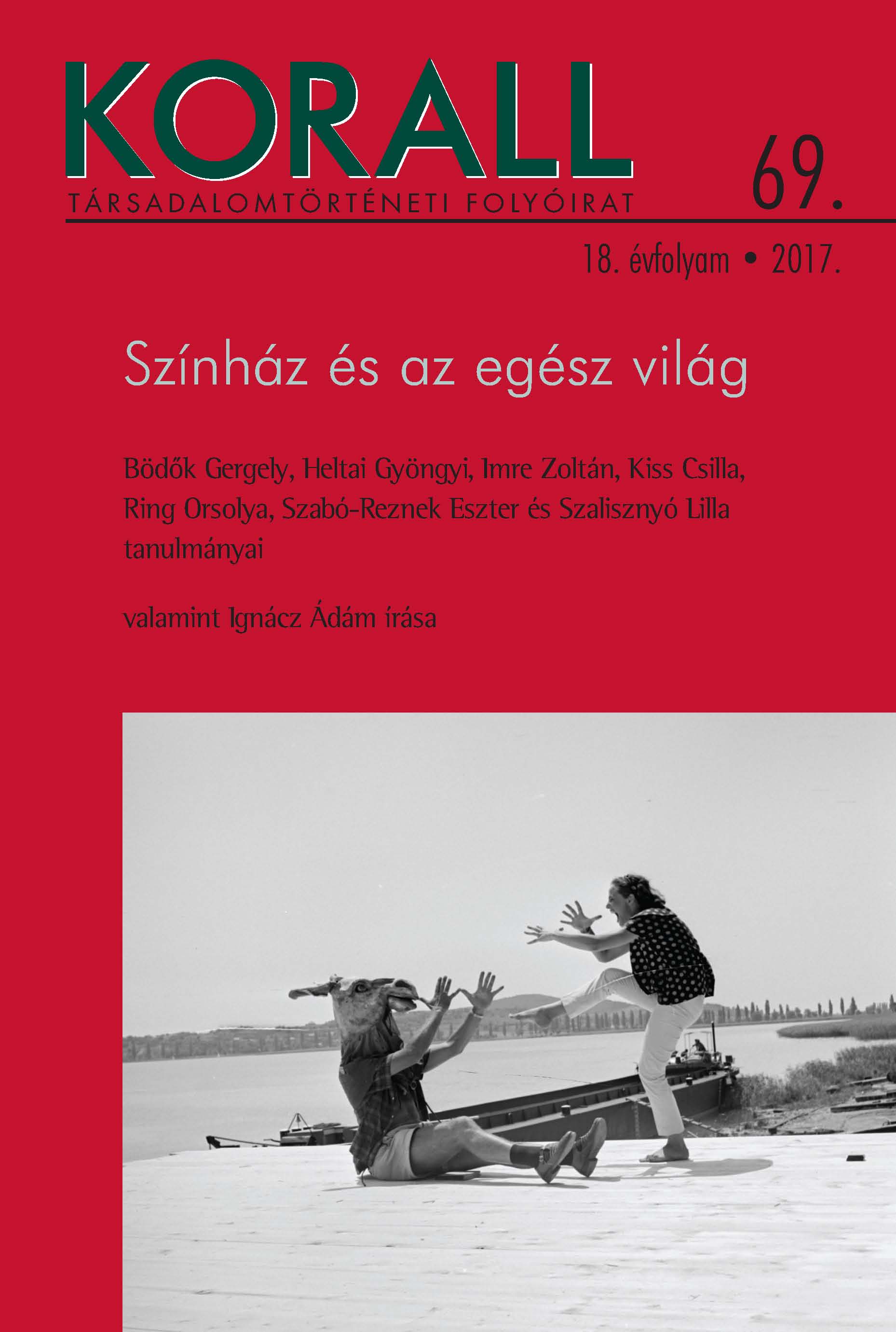Budapest kultúrbástyája vagy proletár bulvárszínház?
The Bulwark of Culture or Tabloid Theatre for the Working Class?
The József Attila Theatre under Imre Fodor’s Directorship (1956–1975)
Author(s): Orsolya RingSubject(s): Cultural history, Social history, Post-War period (1950 - 1989), History of Communism
Published by: KORALL Társadalomtörténeti Egyesület
Keywords: social history;hungary;theatre studies;
Summary/Abstract: Following the nationalisation of theatres in 1949, the context of stage productions was profoundly transformed. The previously market-based theatre model was replaced by state subsidies, which were granted in return for the dissemination of ideology as determined by the political decision-makers of the time. The study investigates the contemporary ideas about influencing a certain group of theatre-goers, actual audience preferences, and the theatre directorate’s responses to them. One of the main tasks of the József Attila Theatre, independent since 1956, was to stage productions for the population of northern Pest, primarily workers, to be enjoyed in their own cultural environment. The study presents and analyses the mass education measures taken in order to transform workers into theatre-goers, specifically audience building, season tickets, supporting ideologically endorsed plays, and various events organised for the public in connection with ideologically approved productions. The first half of the period between 1956 and 1975 is still largely characterised by the practices of the early 1950s. In the second half of the 1960s, however, the language of the discourse changed and the emphases shifted dramatically. This is what makes the story of the theatre’s transformation, as it is indicated in the title, from the bulwark of culture into a tabloid theatre entertaining the working class.
Journal: Korall - Társadalomtörténeti folyóirat
- Issue Year: 2017
- Issue No: 69
- Page Range: 127-145
- Page Count: 19
- Language: Hungarian

